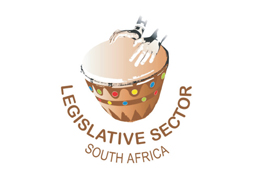
Since South Africa’s democracy began, Parliament and the nine provincial legislatures have operated as discrete entities, brought into close proximity by the broad brush strokes of the legislative prescripts flowing from our Constitution. Now, after a long process of consultation and deliberation, the Speakers’ Forum will today launch the South African Parliamentary Institute (SAPI), which will formulate coherent institutional cooperation among South Africa’s legislatures.
The Speakers’ Forum is the legislative sector’s highest policy-making body, comprising Parliament’s executive authority (the National Assembly’s Speaker and Deputy Speaker and the National Council of Provinces’ Chairperson and Deputy Chairperson) as well as the Speaker of the nine provincial legislatures.
The SAPI launch programme will include contributions from leading figures in the sector, including an address from the National Council of Provinces Chairperson Mr Amos Masondo and National Assembly Speaker Ms Nosiviwe Mapisa-Nqakula. The programme will also include congratulatory messages from the Ambassador of the European Union (EU) to South Africa, Dr Riina Kionka on the SALS-EU development partnership, the National School of Government of South Africa, the South African Local Government Association and the Kenya Parliamentary Institute.
SAPI has been constituted to champion institutional cooperation among South African legislatures by, among other things, adopting norms and standards to enhance coordination, synergy and interdependence. SAPI will also harness the intellectual and administrative capacities of the sector to advance constitutional democracy in a coherent and efficient manner.
According to SAPI’s concept document, it is intended to “enhance the functioning of Parliament and the nine legislatures. Its role will include the provision of capacity development programmes, and the production of quality research and knowledge management for the legislative sector.”
SAPI’s long-term object is to build the sector’s administrative and knowledge systems to transpose and implement its policies and reorganise its structure, regulations and standards. These objectives are underpinned by a shared commitment to foster institutional collaboration. SAPI represents one in a series of efforts to integrate the work and mandate of the South African legislatures into a coherent whole.
SAPI’s launch at the beginning of its five-year term has been energised from concept to conception by the Legislative Sector Support (LSS), an entity that provides administrative support to and facilitates the effective functioning of the Speakers' Forum and other sector structures. The LSS provides a communication link on all matters across the sector.
SAPI will be the sector’s think-tank to ensure a coordinated approach to policy-making, law-making and oversight. “SAPI will be governed by a board of 11 qualified members with expertise in parliamentary practice; public policy; teaching and learning; as well as finance and business matters. The board will be accountable to the Speakers’ Forum,” the concept document further adds.
It’s hoped that SAPI will forecast legislative scenarios and empower legislators to make informed decisions that embrace the challenges brought to bear by Covid-19 and climate change, and harness the opportunities presented by the 4th Industrial Revolution to eradicate poverty, inequality and unemployment.
By Abel Mputing
9 December 2021

